theartsdesk Q&A: Matthew Modine on 'Hard Miles', 40 years in showbusiness and safer cycling | reviews, news & interviews
theartsdesk Q&A: Matthew Modine on 'Hard Miles', 40 years in showbusiness and safer cycling
theartsdesk Q&A: Matthew Modine on 'Hard Miles', 40 years in showbusiness and safer cycling
An eventful journey from 'Full Metal Jacket' to 'Oppenheimer' and 'Stranger Things'
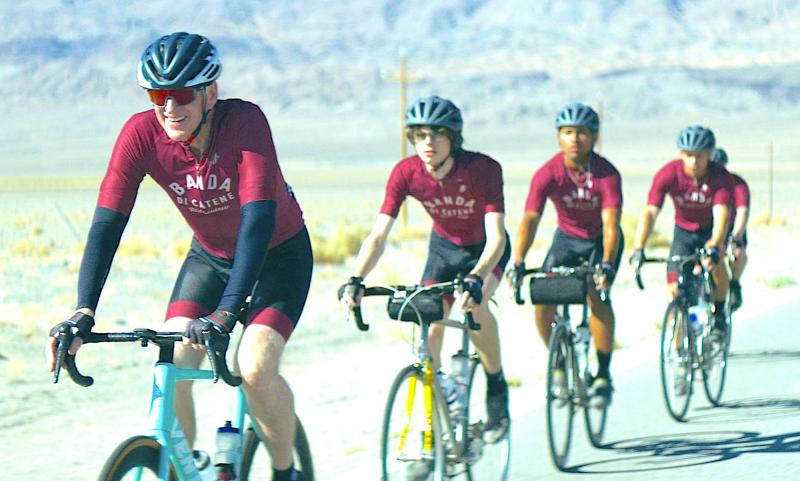
Maybe California-born Matthew Modine caught the movie bug courtesy of his father Mark, who used to manage drive-in theatres, but after bagging his first film role in John Sayles’s Baby It’s You (1983) he never looked back. Blessed with a gift of employability that must make many of his fellow-actors green with envy, Modine has been clocking up a stream of memorable performances for 40 years on both the small and big screens.
The title role in Alan Parker’s Birdy (1984), where he played opposite a fledgling Nicolas Cage, signalled the shape of things to come. His performance as Private “Joker” Davis in Stanley Kubrick’s typically idiosyncratic Vietnam movie Full Metal Jacket (pictured below) marked Modine as an actor with glimmerings of greatness. Kubrick commented memorably that "he is a combination of sensitivity and macho virility. If Gary Cooper and Henry Fonda had a baby it would be Matthew Modine." Modine's on-set observations of the film’s production were later published as Full Metal Jacket Diary, illustrated with his own photographs. It's now available as an iPad app.
He was back in uniform for the World War Two air-war drama Memphis Belle (1990), quickly followed by John Schlesinger’s creepy psychological thriller Pacific Heights. Further landmarks included appearances in Christopher Nolan’s The Dark Knight Rises, Sicario: Day of the Soldado, and a reunion with Nolan in the Oscar-sweeping Oppenheimer.
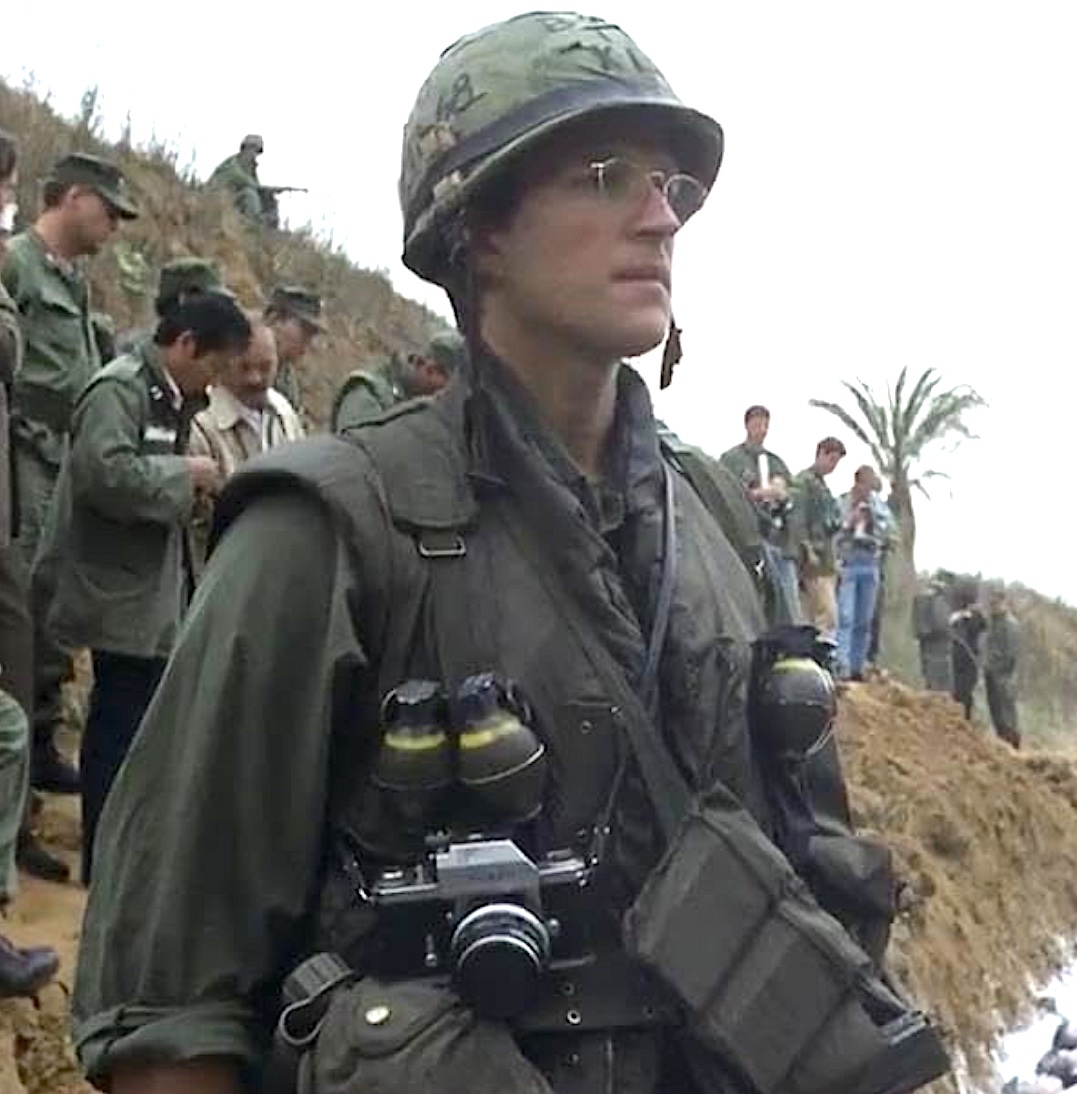 Meanwhile he was clocking up TV appearances in everything from And The Band Played On and Weeds to The West Wing and Law and Order. In 2016 opportunity knocked loudly when he was cast in Netflix’s Stranger Things, as the sinister and ruthless scientist Dr Martin Brenner. The show developed rapidly into a global phenomenon. Amid all this he has found time to direct several short films of his own, and for some theatre work too. In 2022 British audiences saw him as Atticus Finch in To Kill a Mockingbird at London’s Gielgud theatre.
Meanwhile he was clocking up TV appearances in everything from And The Band Played On and Weeds to The West Wing and Law and Order. In 2016 opportunity knocked loudly when he was cast in Netflix’s Stranger Things, as the sinister and ruthless scientist Dr Martin Brenner. The show developed rapidly into a global phenomenon. Amid all this he has found time to direct several short films of his own, and for some theatre work too. In 2022 British audiences saw him as Atticus Finch in To Kill a Mockingbird at London’s Gielgud theatre.
As the following conversation reveals, Modine has yet more strings to his bow, including environmental activism and a keen interest in history and politics. In his new factually-based film, Hard Miles, he stars as Greg Townsend, a tough-love coach at a correctional facility for young offenders in Colorado who takes his young charges on a punishing, character-building bicycle ride from Denver to the Grand Canyon. Modine is a keen cyclist in his adopted home town of New York, but the Hard Miles cycling was off the scale. “I don’t ever want to sit on a bicycle like I rode in this movie ever again for the rest of my life,” he says, with feeling.
ADAM SWEETING: Was Hard Miles based on a memoir by Greg Townsend?
MATTHEW MODINE: I think there was an article in one of the bicycle magazines and our producer-writer Christian Sander read about it and thought it would be an interesting film. He visited the actual facility in Denver, the reform school for young people, met Greg Townsend and thought there’s a movie in this.
Was it your interest in cycling that attracted you to it?
My brother Russell ended up in a reform school. I’m the youngest of seven kids. Russell and his sister Elizabeth were my mother’s sister’s children, so they’re really my cousins. In America we have so much gun violence. I’ve spoken to Russell about this, and it’s a long time ago and it’s still painful for him. But his father came home and shot my aunt and then shot himself, and he did that in front of Russell and Elizabeth. So Russell’s childhood was really damaged and scarred, and as is common with boys there’s sort of this period of trouble between and 15 and 18 years old. In the Sixties Russell found himself using a lot of drugs and getting in trouble, so I used to travel with my mother to the state school and visit with Russell. So I had a big exposure to that world when I was still in my single digits, nine or 10 years old (pictured below, Modine in Memphis Belle).
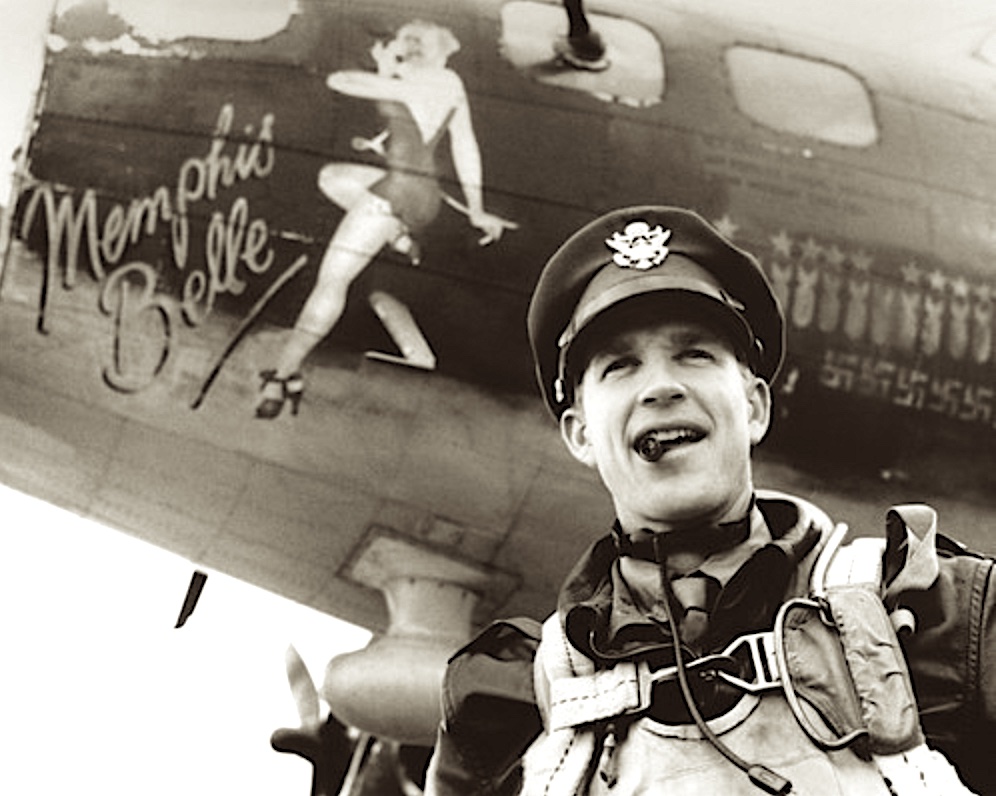 What a traumatic experience.
What a traumatic experience.
Yeah. So I just think it’s so important... in America we’ve really given up on troubled youth, and prisons used to be called penitentiaries. The root of that word is “penance”, so when we made mistakes as young people in our lives we were supposed to go to a penitentiary where we learned a trade, where we got more educated, and when we came out of those sort of facilities we were supposed to be rehabilitated and get on with our lives. What’s happened in America is prisons have become privatised, it’s a business, not really very different from a Kentucky Fried Chicken or McDonalds franchise. Since people own own them privately it’s very important that they keep those prisons full. Any kind of programme like education or a trade, those things cost money so that doesn’t fulfill somebody with a bottom line of trying to run a business.
Do you believe in something like cycling, putting all that effort into it and focusing on it, as a reformative process?
I think it’s vital. Any young person who says they didn’t get in trouble in their youth, the truth of that is that they didn’t get caught. I don’t know many 15, 16, 17 year old kids who didn’t do stupid things, and fortunately we didn’t get caught. I can’t tell you how many times I was driving around as a 16, 17 year old boy having drunk too much and having been so grateful that I didn’t get in a car accident and maybe cost myself or somebody else their lives. What did grandma say? “There go you but for the grace”, right?
How much cycling did you do in the film? It looks like you were putting your back into it.
Yeah, there was no pretending. I’ve done a few movies like that. I did a movie called Wind about the America’s Cup sailing, and Memphis Belle, which we filmed in England, so yeah I got to fly that B-17, sail America’s Cup yachts. With the bicycling there really wasn’t any space for anybody else to do the bicycling for you, you had to, as you say, put your back into it (pictured below, Modine with Robert Downey Jr in Oppenheimer).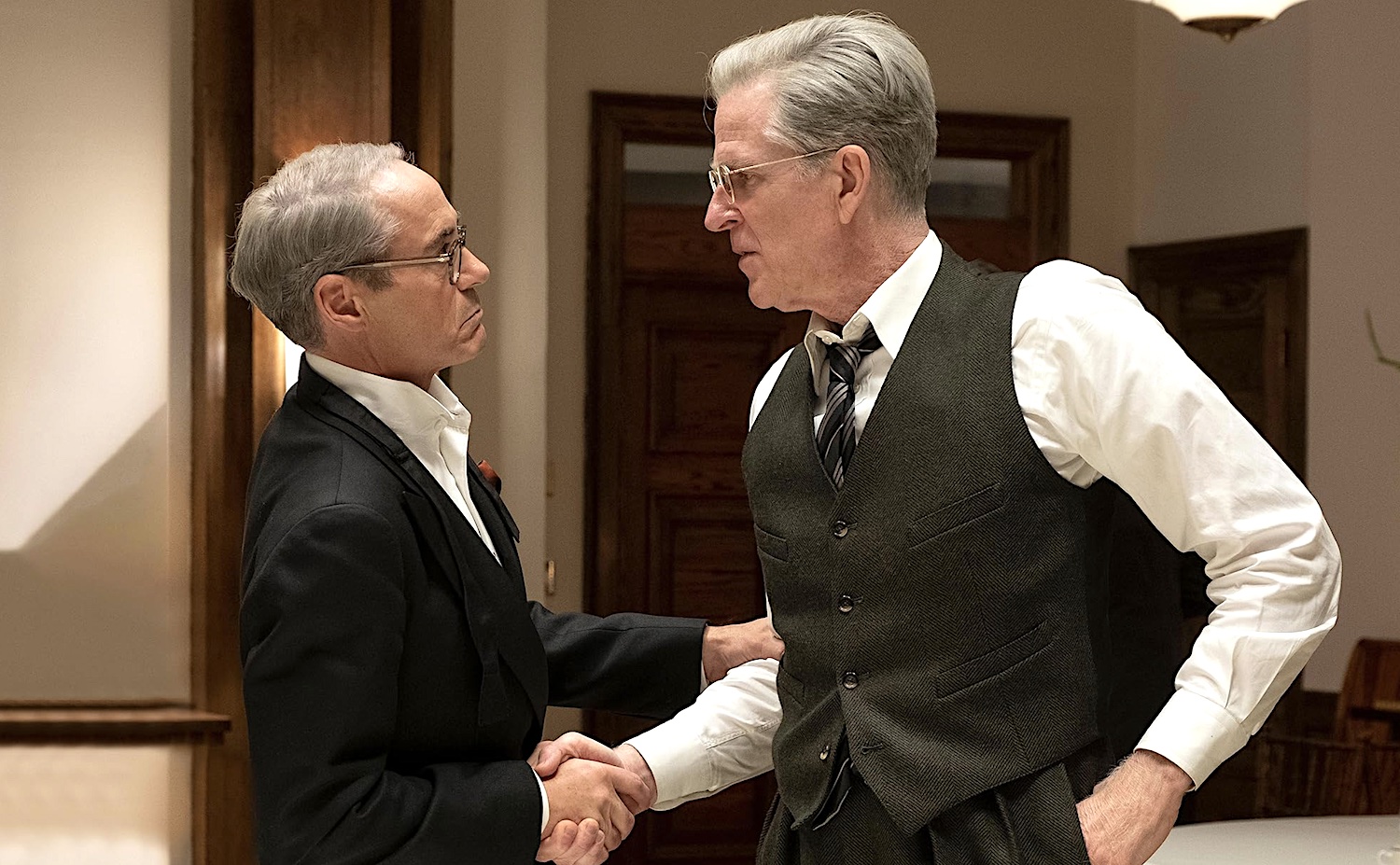 We’ve had news stories in the UK recently about cyclists in London's Regents Park, using it like a velodrome and terrorising pedestrians. A little bit antisocial, I think.
We’ve had news stories in the UK recently about cyclists in London's Regents Park, using it like a velodrome and terrorising pedestrians. A little bit antisocial, I think.
Yeah. I find the bicyclists who wear the helmets and the lycra and clip their feet into the pedals, there’s a kind of arrogance about them. I think they hide behind the helmet and the glasses, and the costume sort of makes them feel like a superhero. I don’t do that kind of bicycling.
What is Bicycle for a Day, that you’re involved in?
I’m an environmentalist, I studied oceanography and astronomy in college and I became very aware of the dangers of human behaviour when I was 18 years old. The oceans are really the receptacle of all of our industrial waste and human waste, and when I was 18 my oceanography teacher said go do something else because at any moment the oceans are going to die. Somebody asked me if there was something I could do to reduce my carbon footprint, what would I do? I said “ride a bicycle”. You’re reducing your carbon footprint by not using a gas powered or diesel powered or electric powered vehicle.
Do you join as a member, or is it more of a broad movement?
It was a movement to encourage people in New York City to ride bicycles. We wanted to organise an event where everybody around the world on the same day would ride a bike instead of driving a car, like a big bicycle holiday to raise awareness about our shared environmental concerns. The question was asked to me by a man named Charles Finch in London, who owns a company called Finch & Partners. Charles is a great outdoorsman and he was the one that really encouraged me to develop Bicycle for a Day into an organisation. We made a presentation at Davos, at the economic forum, and ultimately I received an award from Mayor Bloomberg of New York, and it helped to usher in the bike share programs, the bicycle lanes and safe routes to school for schoolchildren (pictured below, Modine in The Dark Knight Rises).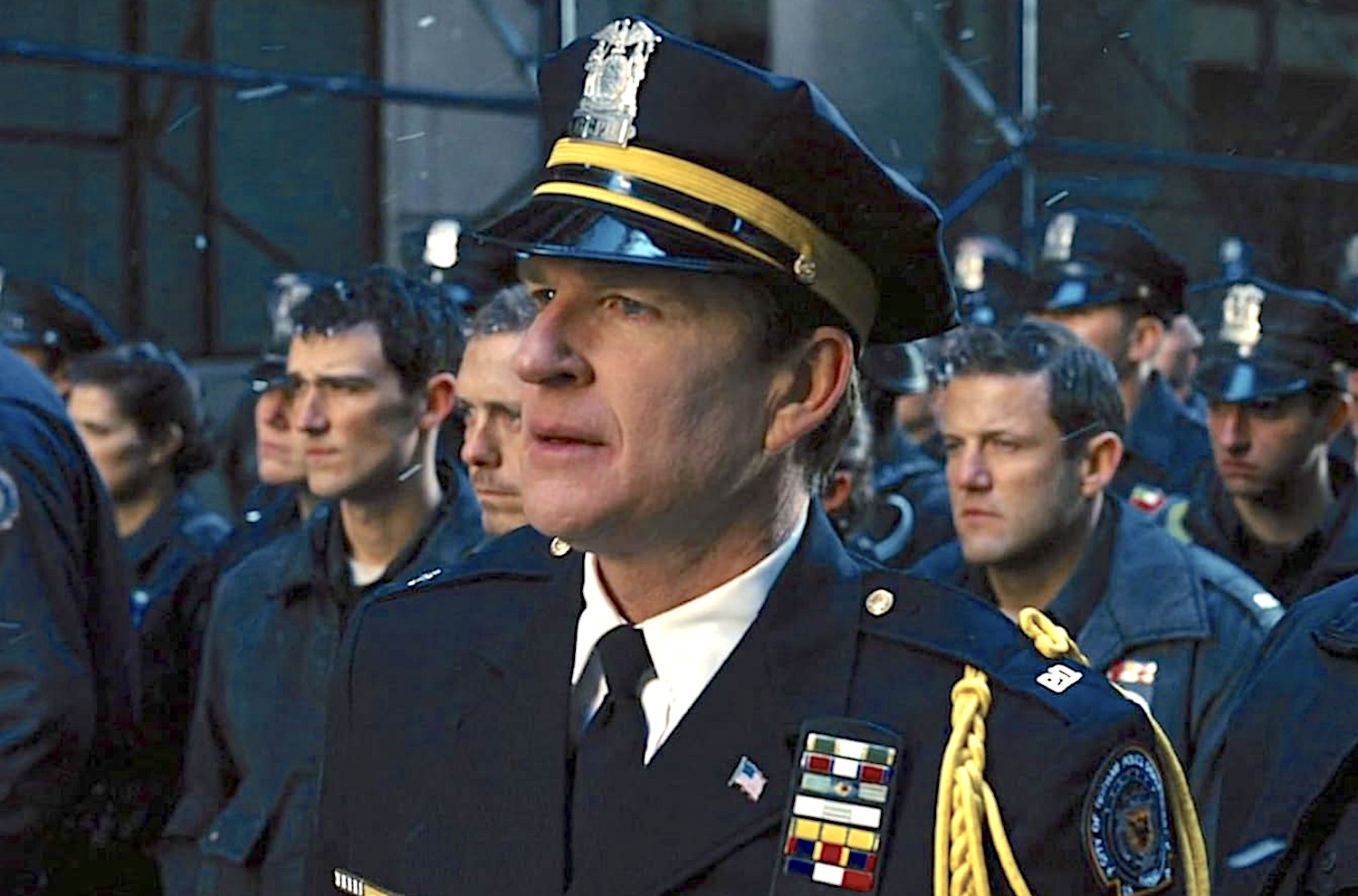 Politically you’re quite liberal, by and large?
Politically you’re quite liberal, by and large?
Well you have to ask what does liberal mean? I remember when George Bush was running against John Kerry, and when he didn’t know what to say he’d just say “Liberals! Liberals are destroying this country!”’, and I kept screaming at the television, at John Kerry, saying “yes, own it! Say yes I am a liberal and let me tell you some of the great liberal accomplishments of this country!” The American constitution and the Bill of Rights are some of the most liberal statements ever made in the history of politics. Inspired by people from Scotland, inspired by the British parliament, inspired by … all the way back to the Stoics and the Roman Empire. They took the best of those things, those liberal ideas, and turned it into American democracy. The word “community” comes from the word com [in latin], which means “with”. And communism is a great concept, it’s a great idea, but it doesn’t work because people are greedy, y’ know, we all want a little bit more for ourselves. If we could lean into the idea of community a little bit more, we could begin to find the solution to the problems that we have throughout the world. We better get our shit together because there’s eight billion people on the planet consuming the earth’s resources at an unsustainable pace.
You made the film Jesus Was a Commie (2011), so was that the same sort of message?
Yeah, that’s exactly the message of the film. It’s not really about Jesus or communists, but it’s the economic disparity which is expanding in our lifetime, before our eyes. The rich are getting richer and the middle is disappearing, the poor are getting poorer, and the air we breathe, the water we drink, the soil that we grow our food in, everything is becoming compromised. So Jesus Was a Commie is just kind of taking the hero of so many people around the world, this man Jesus, and saying OK this is the guy you believe in, this is your hero. Well, how would he feel about your behaviour today? (pictured below, Birdy).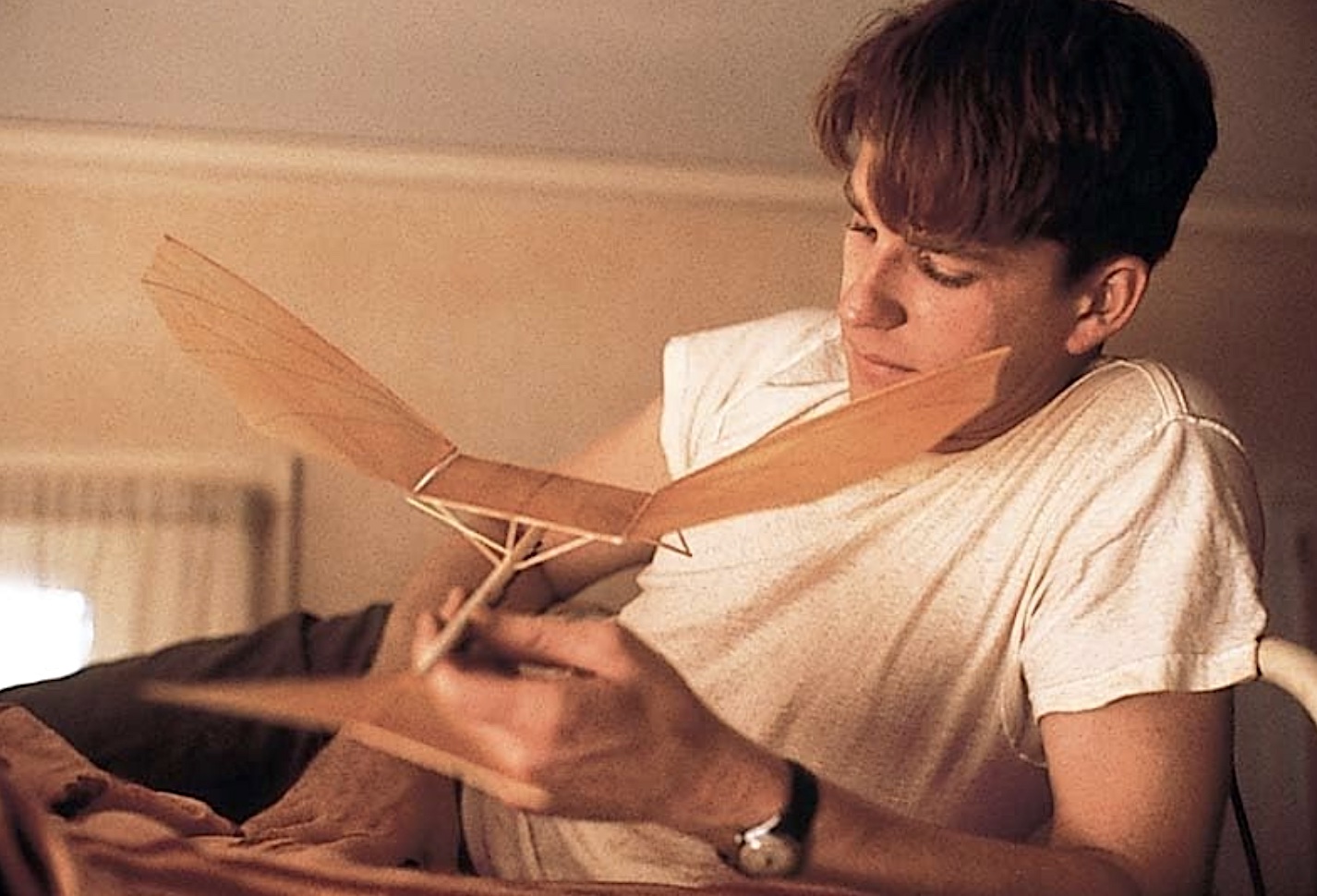 Did you see Apple TV’s series, Franklin?
Did you see Apple TV’s series, Franklin?
Yeah, I started to watch it because I’m reading a really terrific book called The Pursuit of Happiness by Jeffrey Rosen. It's fascinating because it asks how did those four words end up in our constitution, the pursuit of happiness, and it talks about that group of young intellectuals that came up with this concept of American democracy, the great experiment, and it really leads back to the Stoics, Cicero and Epictetus and certainly Marcus Aurelius. Then you find the idea of those words in all the religious texts, whether it’s Asian history or religious history, the Torah, the Koran, the Old Testament. But the thing that’s fascinating about it – “we the people" and "the pursuit of happiness” – is how could these brilliant young minds say those things and yet enslave millions of people? How could they behave so intolerably to the indigenous people of the Caribbean and North America in particular, with the 13 colonies? It was the pursuit of their happiness, and “we the people” was the people that drafted it. Even George Washington – he was one of the biggest slave owners in the 13 colonies. He knew that it was wrong. I think he put in his will that after my wife dies that all of my slaves would be free.
Is it true you turned down the Maverick role in the original Top Gun?
I did, yeah. I’d just come back from East Germany. I went across Check Point Charlie and went into East Berlin, obviously before the wall came down, and I had never been taught in school that the Russians had fought the Nazis, that millions of them died… that had Hitler not made the mistake that Napoleon made of going into that part of the world in the winter time and kept his focus on the UK, the outcome of the war would probably have been quite different. And so I met these Russian soldiers and I smoked at the time and I gave them American cigarettes and they gave me pins from their uniform. They could speak English, I couldn’t speak any Russian. They weren’t any different from my older brothers who had gone to Vietnam, and they were just kids. I’d been taught my whole life the Russians were horrible people and if I felt their hair I’d probably find horns. So I met these kids and I realised that I’d been filled with so much propaganda and hate-thought… it was kind of like George Orwell’s 1984, that I had been taught to believe and to see people as evil and horrible. That it was the government and the military that was the problem, so when I came home, Top Gun was the script that was waiting for me and as I started to read it I just felt that it was perpetuating this idea, this lie and propaganda. It was kind of what I would call war pornography. But I did do Stanley Kubrick’s Full Metal Jacket which was much more up my alley, more my speed.
As a director yourself, what have you learned from these great directors you’ve worked with, like Kubrick or Christopher Nolan?
I think that everybody makes love, right? And they all do it a little bit differently. These really wonderful directors I’ve worked with all do it a little bit differently, you can’t really compare Nolan to Kubrick or Kubrick to Robert Altman or the late great Alan Parker, who I think is one of the best directors of his generation. I did Birdy with him. But I don’t know what makes a good director. I’ve had this conversation with Nolan and different directors and y’know, would you be able to recognise when you’re making a bad movie? Because with every film – I’ve done over 100 now, and every film I go into, we have the same equipment, we have a camera and lenses and a sound department, costumes, makeup, all those things that you see in the credits at the end of a film. And everybody comes to work enthusiastic and hoping to make something really wonderful and magical, and we do the best we can, and sometimes it works and sometimes it doesn’t. What I’ve never been able to figure out is why? I’m the same person in a good movie as I am in a movie that’s not so good, and it’s not for lack of trying. Like William Goldman said, nobody knows anything (pictured below, Modine with Millie Bobby Brown in Stranger Things).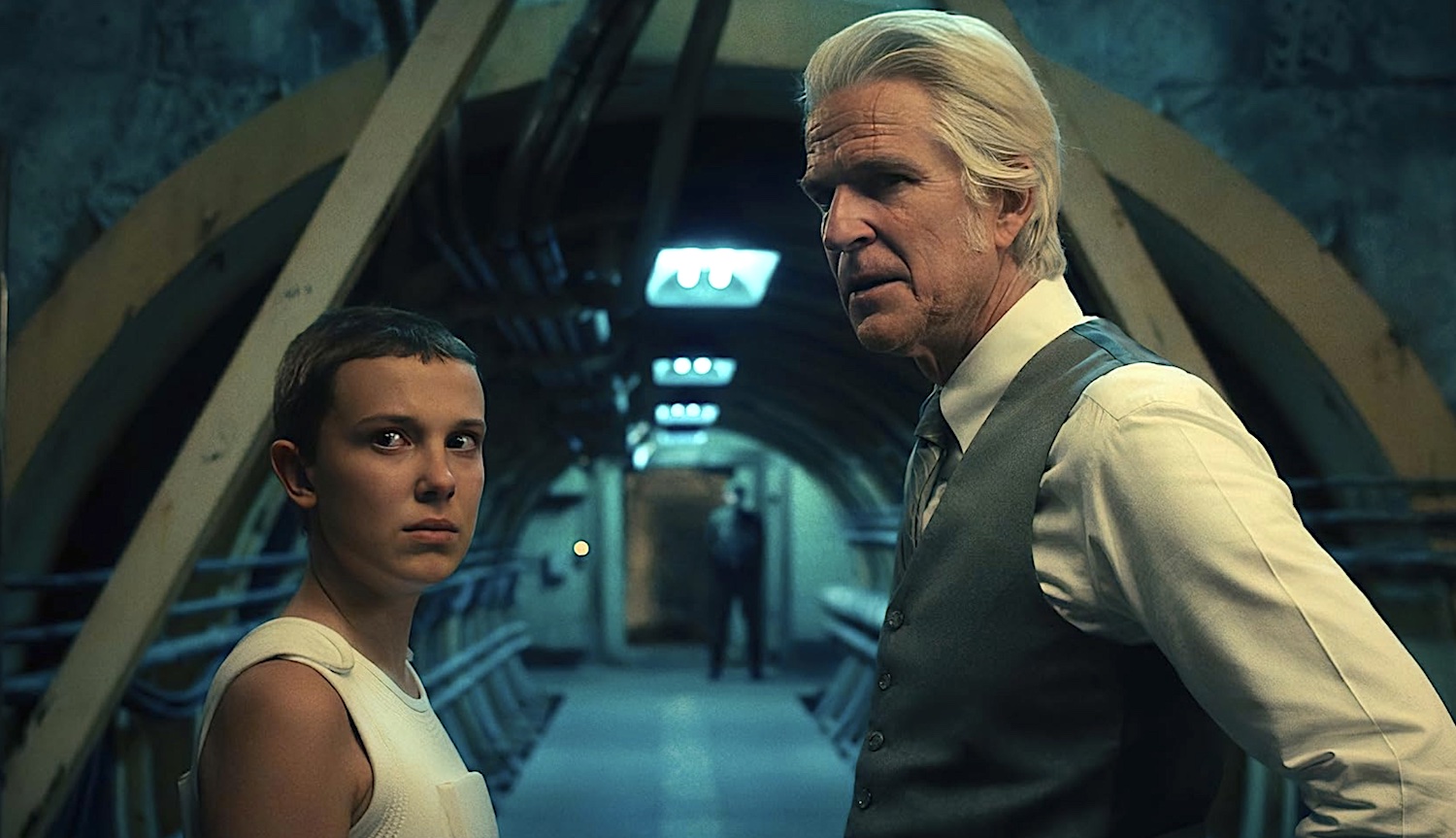 You were talking about Memphis Belle. Have you watched Apple TV’s Masters of the Air?
You were talking about Memphis Belle. Have you watched Apple TV’s Masters of the Air?
I don’t think I could get past the trailer. My uncle was a B-17 pilot in World War Two, he flew 17 combat missions before he was shot down. When I told him I was going to be playing a pilot, I was going to be doing what he did in the war, he took his dress uniform out of the closet and he said try it on, and it fit. I said I’ll wear it in the film. And I said is there anything that you’d like me to do that would sort of be me, y’know, tipping my hat to you? He said no that’s bullshit, don’t do anything like that, but do me a favour. When you put on the uniform don’t disrespect it. And that really rang true with me, so when I got to England and was working with the kids on our first day at work, I had the dress uniform and I told them the story of the 17 missions my uncle flew and being shot down over France, and his crew parachuting out of the plane and ending up in a PoW camp for the rest of the war. Then the punchline was when we put these uniforms on, we had a conversation about not disrespecting the uniform and it changed the temperature of the film where we all really had a profound sense of responsibility to those people that we were portraying. We’d never had experience in war and we were all kind of playing characters that were in war movies that we’d seen before, this sort of John Wayne heroism or a false bravado, and that all went right out the window after that conversation. And I don’t think that conversation happened with Masters of the Air. It was a lot of posing and … I didn’t watch it, I’ll leave it there. Maybe it did get good. Memphis Belle is a really great movie.
Has being in Stranger Things changed your life?
It hasn’t changed my life, but what you want to do in this business is remain part of the conversation and remain relevant. That means having the good fortune of being a part of a successful movie or play or television franchise, and in this case Stranger Things is maybe the most successful television show in the history of streaming. If I put it this way, let’s go back to Full Metal Jacket, one of my big successes in the early part of my career. If FMJ was successful in 30 or 40 territories around the world, that was amazing. Netflix is in, I think, 192 territories around the world so my co-star Millie Bobby Brown and the other actors involved in the show overnight became part of something that had never existed in the history of the industry. More famous at a speed that was faster than the Beatles or Elvis Presley or Frank Sinatra. Netflix’s outreach made them successful and famous in a way that had never existed in the history of the entertainment industry, so I have the good fortune of being part of a show that is a phenomenal global success and it keeps me in the conversation (pictured below, with Cliff Robertson in Wind).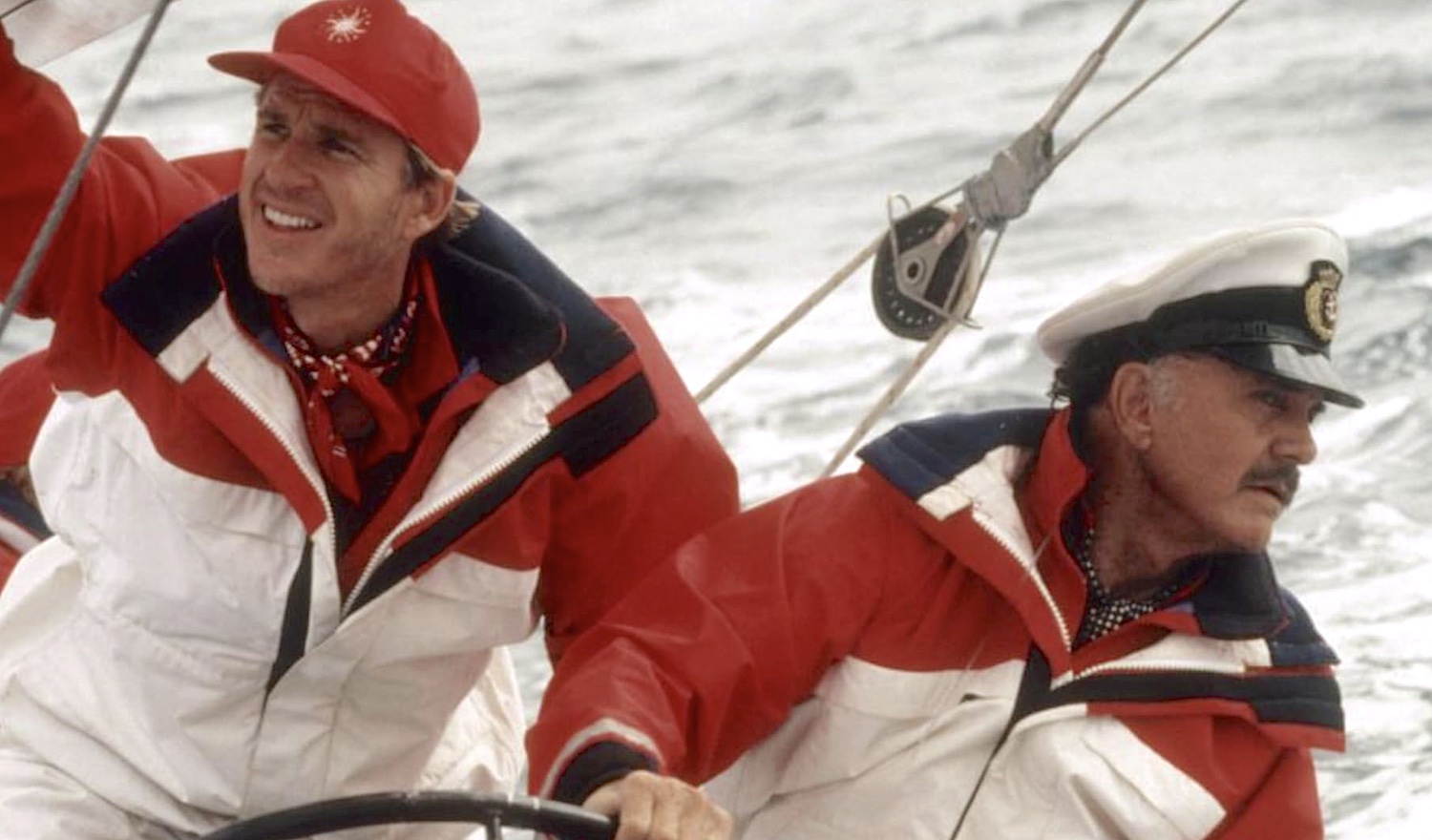 Do you have more of your own films up your sleeve?
Do you have more of your own films up your sleeve?
Yeah, behind the Zoom screen here there’s a script that I was working on early this morning, and it’s a limited series, probably 20 episodes, of a famous book. That’s the wonderful thing that streaming provides you with, that you can tell a story that doesn’t have to be a two hour movie or an hour and a half movie. You can take a 600 page book and create a 20 episode series. I’m sad that Stanley Kubrick wasn’t alive to experience streaming because he always wanted to make Napoleon, but he said the problem is that the story he wanted to tell would take six hours to tell. Well, today he could have made a 15-hour Napoleon, and I would have loved every minute of it.
Do you feel your career is starting again in some ways?
Not starting again, but it’s like a roller coaster. You go round and grab the ring and you get to hold it for a little while, but it’s very important to notice that it’s the pursuit – it’s not the attainment – of happiness. My acting teacher, Stella Adler, used to say “celebrate yourself in the art, not the art in yourself”. You’re enjoying the pleasure and the pursuit of educating yourself, and sharing the things that you learn with your audience.
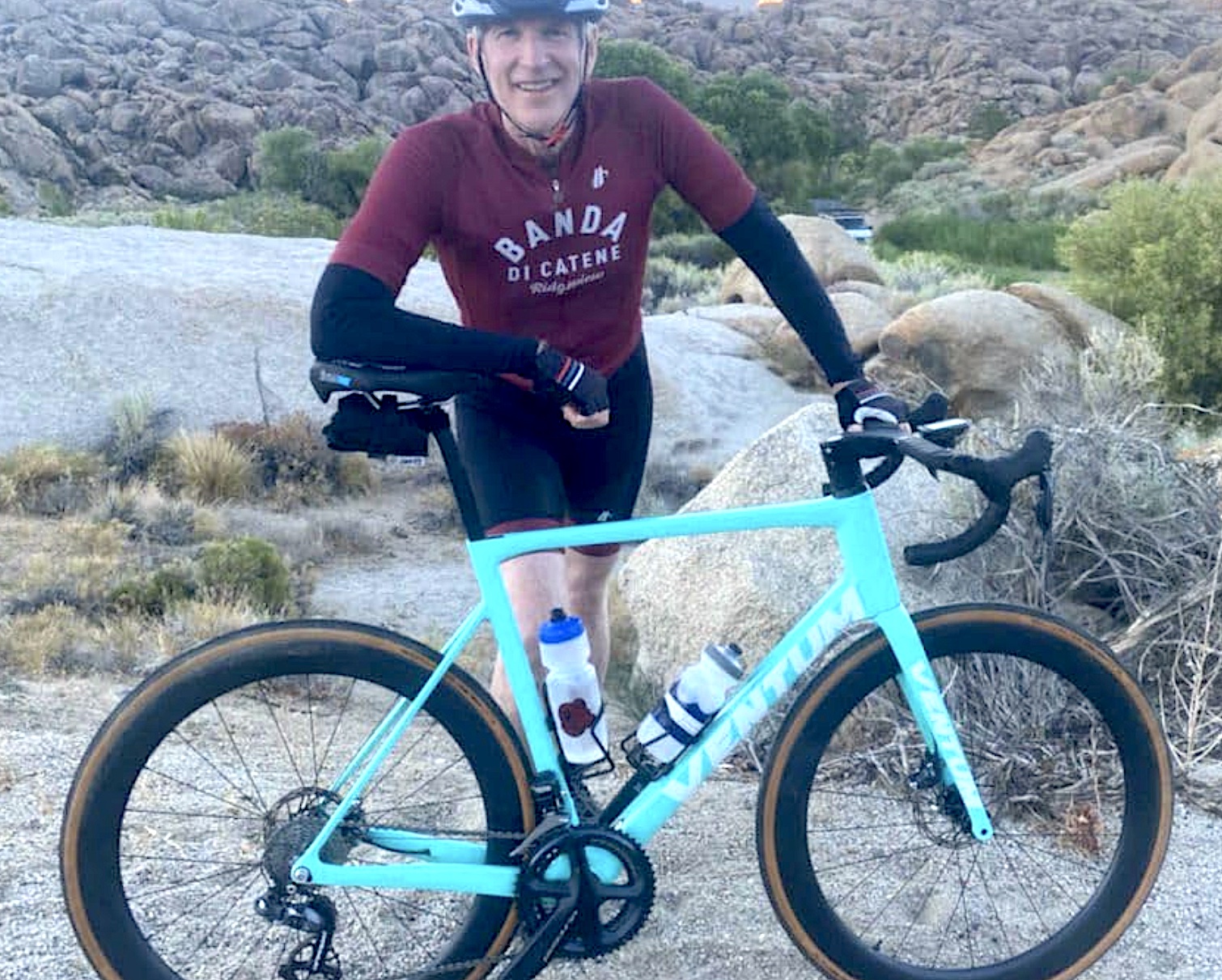 And finally… any message to London’s cyclists?
And finally… any message to London’s cyclists?
Upright bicycle riding! Don’t ride a bicycle with your head out over your front wheel. That’s the heaviest part of your body and so if you hit something, that’s usually going to be your head against something immovable. I do upright bike riding so that people can see you, and you can see obstacles that you might want to avoid.
Excellent advice...
- Hard Miles is in cinemas from Friday 31 May
The future of Arts Journalism
You can stop theartsdesk.com closing!
We urgently need financing to survive. Our fundraising drive has thus far raised £49,000 but we need to reach £100,000 or we will be forced to close. Please contribute here: https://gofund.me/c3f6033d
And if you can forward this information to anyone who might assist, we’d be grateful.

Subscribe to theartsdesk.com
Thank you for continuing to read our work on theartsdesk.com. For unlimited access to every article in its entirety, including our archive of more than 15,000 pieces, we're asking for £5 per month or £40 per year. We feel it's a very good deal, and hope you do too.
To take a subscription now simply click here.
And if you're looking for that extra gift for a friend or family member, why not treat them to a theartsdesk.com gift subscription?

Add comment